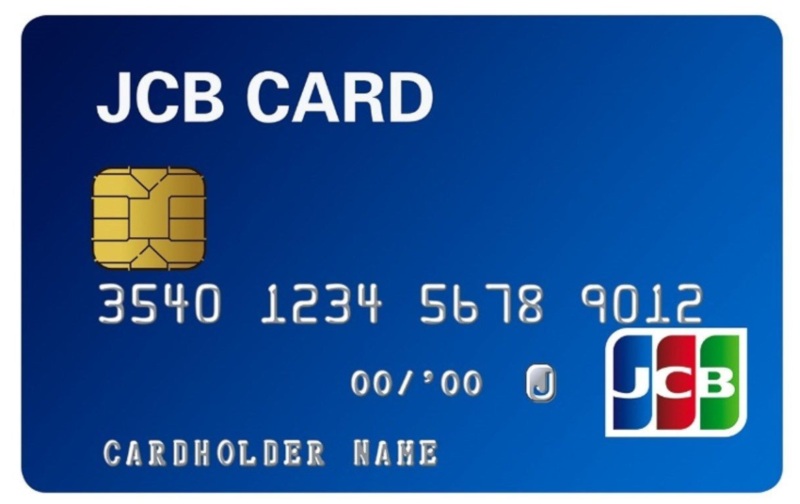JCB Card

JCB cards, formed by the Japan Credit Bureau (JCB), are popular in the evolving payments industry. The network comprises credit, debit, loan, gift and prepaid cards. They also offer a convenient way to fund online trading accounts. Our review is an introduction to JCB card payments and will focus on its use as a deposit method in trading. We will cover the different card types, rewards by tier, the global application process including in Japan and the UK, customer support and more.
How JCB Card Payments Work
History
JCB Co Limited was established in 1961 from headquarters in Tokyo, Japan. In 1981, the company expanded its global presence via international alliances, meaning that all JCB cards can now be used across the world. This includes partnerships with UnionPay enabling cards to be used in Japan and China, plus American Express, to support payments in Australia, New Zealand, Canada and the USA, via the Discover network.
JCB has been the leading credit card company in Japan for 50 years and a global payment brand for 30 years. The trademarked brand icon consists of three stylized ‘S’ characters resembling support, strength and sharing.

What Is It?
As of 2020, the JCB (Japan Credit Bureau) payment company had 141 million registered card members, with a reported annual transaction value of $306 billion. Today, the company has a revenue of 10.6 billion yen ($87 billion) and holds a 1.1% market share among total credit card issuers in the world. It remains the only international payment brand originating from Japan.
The JCB payment solution offers a range of cards to meet individual needs. This includes credit, debit, gift cards, and pre-paid cards that are accepted in 190+ countries outside of Japan. The number of merchants currently offering JCB card payments is over 37 million. These span Europe, Asia and the United States of America. It is also an ideal method for funding swing trading accounts, offering various benefits and unique rewards.
Transaction Times
Payments to a swing trading account via a JCB card are typically fast. Funds can be received to an investment profile the same day. Processing times can, however, vary depending on your chosen card type, bank issuer and currency. Your broker may also have specific processing timelines which can cause delays to funds reaching your account. eToro, for example, processes all card payments within two hours, though withdrawals can take up to ten working days.
A major benefit of card payments is that transactions are usually processed on the weekend and public holiday dates so you can be assured of a reliable solution whenever you are trading.
Pricing Review
Our review found JCB was not particularly transparent with their fees and charges, although these are often relevant to merchants only. Typically, swing trading brokers offering JCB cards as a payment solution will absorb any fees rather than passing them on to the trader. FXTM, for example, offers credit and debit card payments at no additional cost.
It should be worth noting, however, that it is not uncommon for credit cardholders to incur an annual membership fee, varying by card status level. Banco de Oro (BDO), for example, offers a Gold JCB card with a Peso 200 monthly charge. Interest rates are also charged at 2%.
Security
The JCB card is a secure payment method, making it easy for customers to deposit and withdraw from trading accounts with confidence. The brand is PCI-DSS level 1 certified, meaning the highest level of safety is acknowledged when processing payments. The network categorises its security functionality into two major programmes:
J/Smart
The JCB Smart Card solution protects against counterfeit via EMV compliant chip applications. This is ISO 7816 compliant. The company works with issuing partners to ensure the same standards are adhered to throughout their network. JCB is also a member organization of EMVCo alongside established providers Mastercard, VISA and American Express.
J/Secure
This is a global authentication system to identity card members. JCB merchants, including trading brokers, can install the MPI (merchant server plug-in) to offer a secure login service. This can be used in addition to traditional methods such as 3D Secure (3DS) or CVV and security code information.
Additional card protection schemes used by JBC include holographic magnetic stripe implementation to prevent counterfeit or fake card circulation. Still, be cautious of dummy JCB credit card generators online. These offer credit rating test initiatives and a free card number to sample. We found they were running alongside some unrealistic promo incentives. As a result, apply through official card issuing partners only. A full list can be found on the payment card providers’ website and include AEON Credit Service Co Ltd, City Union Bank, MCB Bank and more.
Finally, never share payment details via untrusted sites and check the regulatory authorisation and data privacy features of your trading broker.
Pros of JCB Card for Traders
Benefits to trading with JCB cards include:
- Promotions – JCB cardholders can access exclusive offers and promotions. These global rewards include shopping discounts and complimentary travel services like access to airport lounge services, discounted car rental and free travel insurance
- Global Availability – JCB credit and debit cards are available in over 190 counties including India, Russia, Germany, Hong Kong, the Philippines and more. Cards are issued in 24 territories from banks or merchant partners. Although still quite limited, it is good to see an increasing number of international brokers offering the payment solution
- Various Cards – JCB offers several cards, including options specific to certain countries. The proprietary line-up includes Premium, Affinity and Business. These encompass credit cards that provide financial flexibility and debit cards that offer convenience. T&Cs may apply when applying for some cards and online applications may be declined if certain criteria are not met
- Secure Payments – Swing traders using a JCB card to fund an account should feel assured of the security features. The J/Smart and J/Secure schemes offer exceptional safety functionality to protect against counterfeit, identity fraud and data privacy exploitation. Well-established affiliate brands including VISA and Mastercard also provide services such as 3D secure and 2FA for additional protection
- Customer Support – JCB credit, debit, or alternative cardholders gain access to a 24-hour hotline phone number. J-Premier and Platinum JCB cardholders have admission to a concierge desk, operated by multilingual representatives 24/7, 365 days a year. Response times are generally positive. Alternatively, the brand is prominent on social media with many peer-reviews on YouTube and Facebook. Video content also includes compatibility with Apple Pay, how to apply for the gift card at Amazon and step-by-step trading account deposit tutorials
Cons of JCB Card for Traders
Drawbacks to trading with JCB cards include:
- Credit Card Rules – Many brokers do not allow traders to purchase stocks or shares directly with a credit card due to the volatility and risks involved. Therefore, consider a JCB pre-paid card or a debit card instead
- Fees – As with many card payment methods, fees, annual charges, exchange rate conversions, commission and interest charges may apply. Choose the best-suited card for your funding requirements and swing trading strategy before opening an account
- Not Anonymous – By linking a JCB credit or debit card to your online trading account, you are potentially sharing financial information. Ensure you choose a regulated broker and only share the relevant information such as the 16 digit card number and security code
- Not Widely Accepted By Brokers – The JCB card is not a widely recognised payment method outside of Japan. Many international brokerages still don’t offer the payment solution. You may find alternative cards such as VISA or Mastercard more commonly accepted

How to Make JCB Card Deposits & Withdrawals
Making a JCB card deposit or withdrawal to a trading account is simple once registration is complete. Firstly, you will need to contact your local bank or credit union to apply for a card. Products, limits, services and features may vary by country of residency and personal circumstances.
To make a transfer, head to the payments section of your broker’s platform. Redirection to the payment partner’s interface is automatic and typically embedded in the client portal. Enter your details including the 16 digit card number and security code. Next, follow the on-screen directions and enter the deposit amount. Remember, minimum deposit requirements will vary between brokers. It is also worth checking the credit card withdrawal rules before funding an account.
Accepted Countries
Contact your local bank or visit your local affiliate partner to understand if a JCB credit/debit or alternative card is available in your jurisdiction. Accepted countries include Taiwan, Sri Lanka, Vietnam, Bangladesh, Myanmar, Pakistan, Korea, Malaysia, Singapore, Hong Kong, New Zealand (NZ), France, UK, Turkey, Hawaii, Egypt and the UAE.
Verdict
The JCB card payment network is set to become increasingly popular among global brokerages due to its convenience, security and international reach. Online traders can be assured of various rewards and benefits, 24-hour customer support and safety features. With that said, watch out for fees as some brokers may not cover all charges and there is a lack of transparency on the official website. Importantly, annual registration fees, interest rates and exchange rate conversions are your responsibility.
FAQ
Is A JCB Credit Card VISA Or Mastercard?
The JCB card is neither a Mastercard nor VISA card. They are separate payment card providers operating internationally.
How Do I Get A JCB Card?
JCB works closely with affiliate partners to meet the specific client needs within each international country or territory. To get a card, you will need to sign up via your local partner. Issuing partners include the Bank of Central Asia (BCA), United Overseas Bank (UOB), and MCB Bank.
What Are The Differences Between A JCB Card Vs Mastercard?
Mastercard is the world’s leading payment card processor due to its low fees and global reach. Although both brands offer a range of cards, rewards and security features, JCB is still predominantly recognised in Japan only. Traders will find Mastercard is offered more frequently as a funding method alongside the likes of PayPal and other e-wallet providers.
What Different Card Types Are Available From JCB?
A range of JCB card options are available including credit, debit, prepaid and gift cards. Premium card options include the Aeon Premier JCB credit card, Gold Card BDO, The Class Card, and the Platinum RCBC Bankard. Cardholders also gain access to benefit levels not available to standard members.
What Is The JCB Credit Card Japan Contact Number?
JCB card customers in Japan can contact the PLAZA call centre on 0120-500-544. This is a toll-free number.
